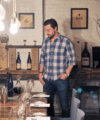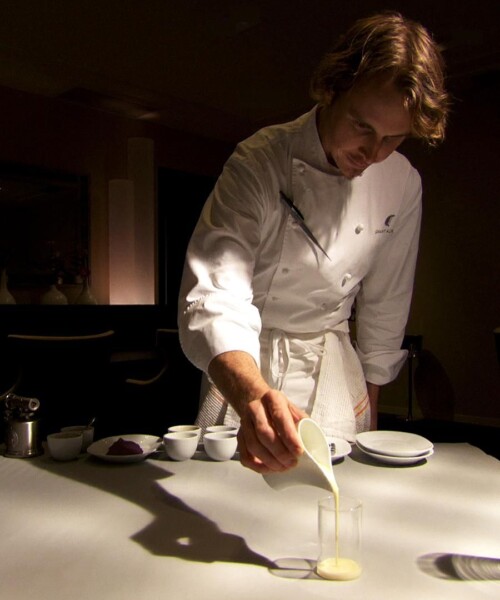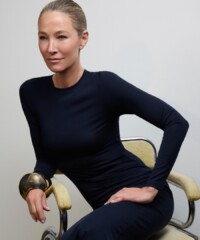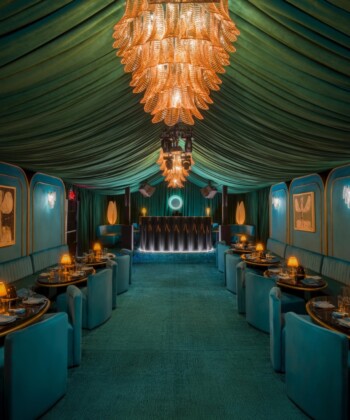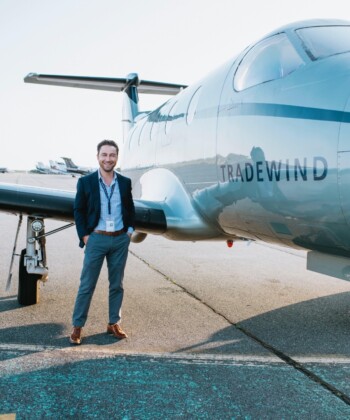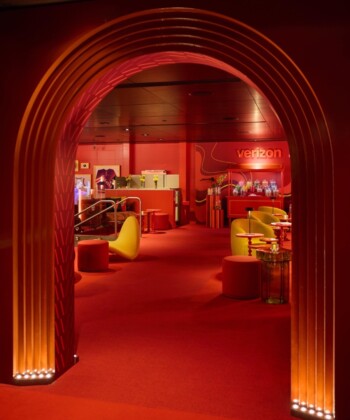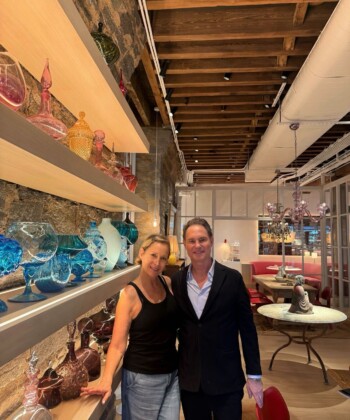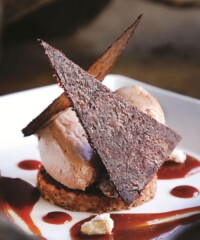It’s no easy task getting into one of Grant Achatz’s critically lauded, forever-packed Chicago restaurants Alinea and Next, but getting up close and personal with the chef is a much less daunting prospect. This week, Achatz gets the big-screen treatment in Spinning Plates, a documentary following three American restaurants as their owners grapple with a grab bag of successes and failures.

Achatz has had a famously rough road. In 2007, the chef faced a life-threatening battle with mouth cancer, an ordeal that was the basis for his book Life, On The Line. During his illness, Achatz—as seen in the movie—hardly lightened his load and these days, cancer-free, he has two of the most highly regarded eateries in the world.
DuJour spoke to the chef about molecular gastronomy, cameras in the kitchen and his own guilty pleasures.
You gave director Joseph Levy a lot of access for this film. What made you decide to subject yourself to a kitchen full of cameras?
Joseph had filmed when I was at [the restaurant] Trio in 2003 when he made a smaller documentary for the Food Network. We formed a relationship then. When you’re running a restaurant and people want to come and film, it’s typically a pain in the ass; they basically invade your space. Joseph and his team tread very lightly, they didn’t get in our way, and so I trust them. Ten years later he came back to me and said he wanted to do a bigger version of that documentary and I was like, sure, cool, sounds good.
Do you find yourself fielding a lot of requests like that?
There are a good amount of requests we get for filming, and we turn a lot of them down because there’s a level of trust you need to have for the people who are a part of it and what they do. At the end of the day, it’s about people we like working with.
Part of the film focuses on your struggle with cancer. Were you ever apprehensive to put that part of your life on film?
For me, to be exposed like that is all about creating awareness. Honestly, when I got diagnosed with cancer, I didn’t know anything about it. I was an idiot; when they told me I had Stage 4 cancer, I thought that meant out of 10 stages. With this movie and with my memoir, I’m just trying to get people know it’s OK if you have cancer, and there are ways to sort it out and get the right treatment.
I loved the glimpses inside your kitchen, where you keep gadgets like the Anti-Griddle, which was so cold it could freeze olive oil. What’s your favorite piece of kitchen technology?
We’ve got some really cool stuff. I think the Anti-Griddle, which you’re talking about, is pretty fun. I went to Philip Preston at [culinary technology firm] PolyScience and said we should make something that freezes things to be really, really cold. Three weeks later he gave me a prototype. We have all sorts of things in the kitchen, but for me the Anti-Griddle was a creation that stemmed from a need in the culinary world, so that’s my favorite.
At various points in the movie, you’re shown toting a bottle of Diet Coke. Do you have any other lowbrow snack vices?
It’s funny how everybody is fixating on this Diet Coke thing. Every person I’ve talked to about the film has mentioned it, which is weird because I don’t really drink Diet Coke much anymore. I’m drinking coffee now, does that count as a vice?
Yeah, I think it does. What’s next for you?
We’re going to open a couple more restaurants in Chicago next year. We want to do a spin on a pub, we want to do our own interpretation of a coffee and tea place. There are a lot of things going on.
Watch a clip from the film featuring Alinea below:
MORE:
Life Lessons from a World Renowned Chef
George Mendez’ Brazillian Turn
How Tom Colicchio Plans to End Hunger in the US




















